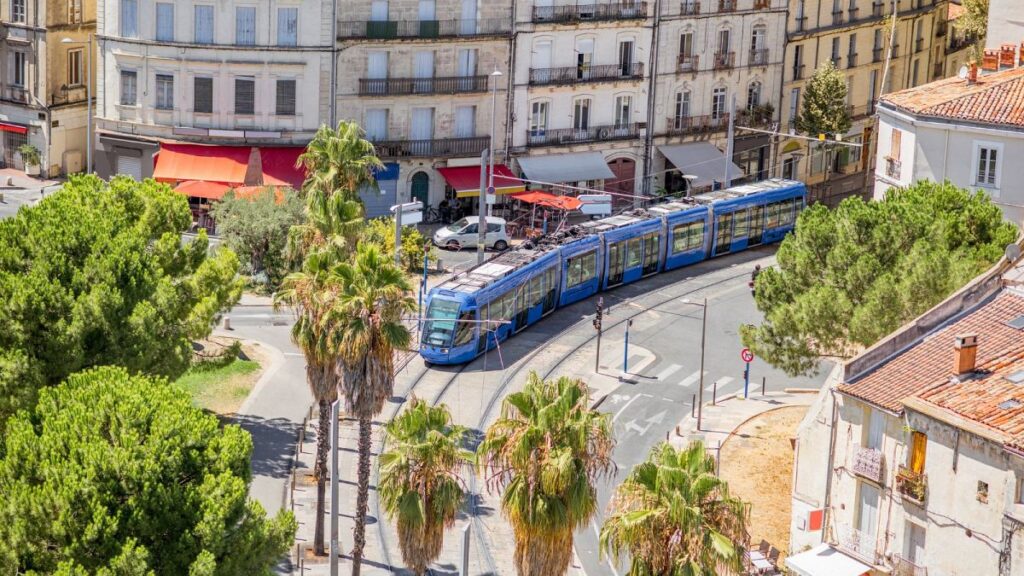Montpellier has introduced free public transport to fight the climate crisis and reduce the cost of living for its residents. The latter seem to appreciate it.
Public transport use in Montpellier increased by a third after they were made free a year ago, new figures reveal.
The city of 510,000 inhabitants claims to have recorded 110 million trips on its public transport network since the implementation of the system on December 21, 2023, compared to 84 million trips in 2019.
“Free public transport means acting for the future of our children and grandchildren in the face of the challenges of climate change, by making CO2-free mobility accessible to all,” declared Michaël Delafosse, mayor of Montpellier, and Julie Frêche, vice-president of the Métropole de Montpellier, in a joint press release.
How did the city of Montpellier make public transport free?
The establishment of the free public transport for all residents was done gradually. In 2020 they are free on weekends, and the following year they become free for under 18s and over 65s.
Two years later, the ambitious generalization project came into force, making Montpellier the largest European city to implement such a measure.
Only residents can benefit from it. They must register with a photo ID and proof of address in exchange for a free transport card. The card must be scanned during each trip so the city can track usage statistics.
Politicians claim that climate crisis was one of the main reasons for introducing this measure, as they wanted to encourage a shift to greener transport to reduce emissions and air pollution in the city.
They also wanted to improve the cost of living citizens, emphasizing that a family of four could save 1,470 euros per year thanks to this system.
How is free public transport financed?
However, public transport must be financed in one way or another. There are three main sources of financing in France. The first is made up of the commercial revenuesuch as tickets, which Montpellier continues to charge non-residents.
A tax is also imposed on employers with at least 11 employees to finance public transport and mobility services. Finally, a public funding is obtained from local authorities.
Critics of free public transport argue that the cost is borne by the taxpayer and that it can discourage investment in public transport systems.
The city of Montpellier is highlighting its billion-euro investment plan in transport over six years, with funds invested in cycle paths, carpooling and public transport.
If Montpellier is the largest city to introduce free public transport, it is far from being the first in Europe to do so.
Tallinnthe Estonian capital, led the way in 2013. Since then, many other cities have implemented their own systems, while two European countries have embarked on the adventure. Luxembourg made trams, buses and metros free for all in 2020, and Malta followed suit in 2022.
Additional sources • adaptation: Serge Duchêne

